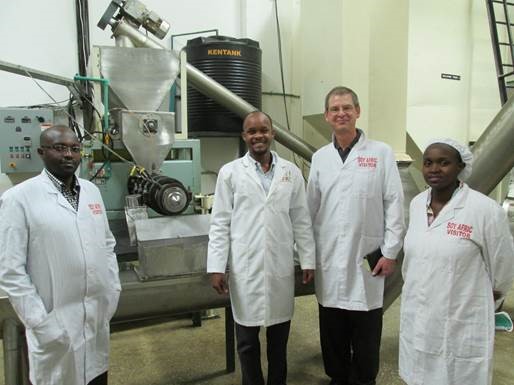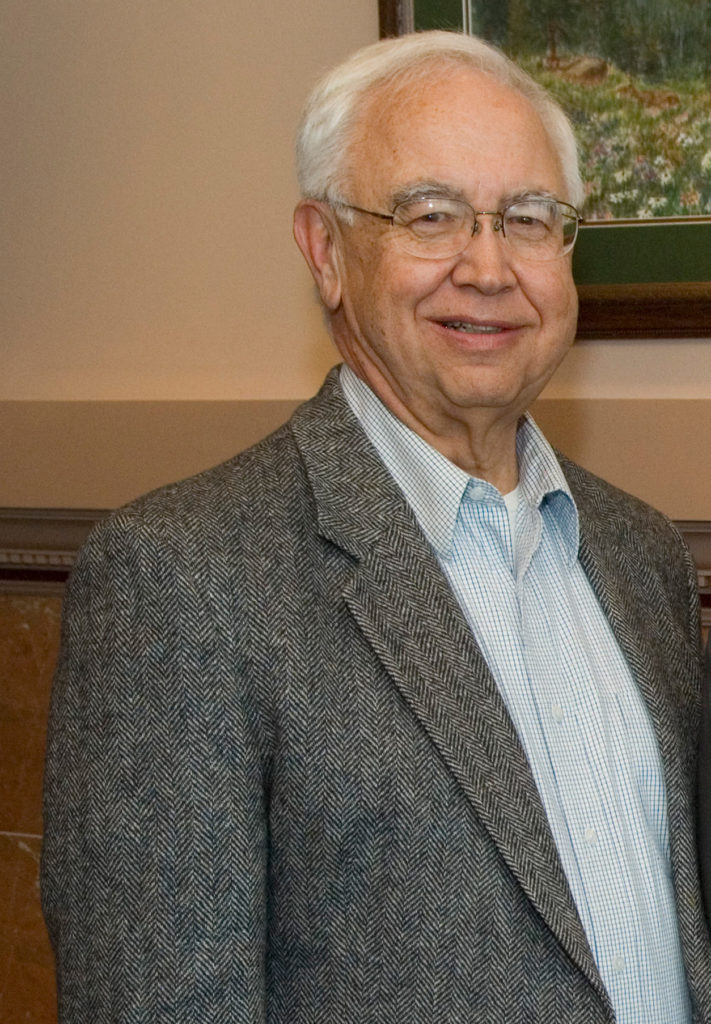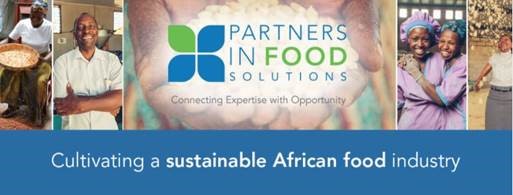Former General Mills executive Dave Cummings doesn’t act like a man in retirement.
While Fort Collins sleeps at 5 a.m., Cummings is usually on Zoom calls with African food processing entrepreneurs.

He’s still putting his 1977 CSU engineering degree to good use, and cheerily blames Jud Harper, Chemical and Biological Engineering emeritus professor, for getting him into the food processing business.
Cummings spent his 30-year career at General Mills across the manufacturing, engineering and R&D departments before he helped start up the company’s extension into a hunger-fighting non-profit called Partners in Food Solutions. The organization helps companies in the developing world with creating sustainable food manufacturing.
Who better to teach people how about how to produce nutritious, safe, affordable food than General Mills, the maker of Gold Medal flour, Cheerios and Nature Valley granola bars? “More than 100 brands. In more than 100 countries. On six continents,” the General Mills website says.

And who better to lead Partners in Food Solutions than a student of Harper, who pioneered low-cost food extrusion technology built in the 1970s that is still being used in parts of Africa? “Jud literally wrote the book. He was an industry leader in extrusion processing,” said Cummings.
Food extrusion technology developed by Harper, cooks and dries the food to make it edible and more nutritional. One product typically known as a Corn Soy Blend is a supplemental food that is fortified with vitamins and minerals and helps vulnerable people such as children and pregnant and lactating mothers. Companies like General Mills use extrusion technology on a much larger scale to make food including snacks and breakfast cereals.
“Soy is not an easy thing to cook by itself,” Harper said. “This processing can be accomplished with the extruder; it precooks the material making it fully digestible, more nutritious, and better tasting.”
At the time, Harper said the federal government wanted to improve the nutrition and food supply for people around the world, particularly in Africa. Corn and soy, which are widely available, together produce a protein base that’s as good as the protein in milk, Harper said.
Cummings got his first job out of college working for Harper, installing low-cost extrusion systems to produce the Corn Soy Blend, known as CSB, in Tanzania and in Costa Rica. The devices are still used in Tanzania, Kenya, Zambia, Malawi and other nations, 40 years after Harper started the program there in the 1970s.
“I had Dave as a student in agricultural engineering – he was very bright and articulate and a hard worker,” Harper said. “I was happy to have him join the team and get him started in the right direction.”

“It’s actually very hard to imagine the number of lives improved by the adoption of this technology to produce nutritious foods around the world,” Cummings said. “It was introduced in South America, Central America, SE Asia as well as Africa by our team in the 70’s. In Malawi alone, the World Food Programme was feeding CSB to 10,000 kids a day in school feeding projects just a few years ago.”
Cummings said he was introduced to the food processing business after a conversation with Harper early on at CSU. “He hired me as an undergraduate. In my free time, I’d go to the Foothills Campus and I did anything and everything,” Cummings said. His career eventually led to a position with General Mills where he worked for more than 33 years in various divisions including engineering, manufacturing and R&D. In one role he was responsible for the company’s new process system engineering.
In 2008, the General Mills CEO at the time, Ken Powell, attended the World Economic Forum in Davos, Switzerland, that changed the company and Cummings’ world.
“Ken Powell met Kofi Annan (U.N Secretary-General) who asked him, ‘What are you doing about hunger?’ When he came back to his leadership team, Powell said, ‘I need a better answer.’ That evolved over a few months. We decided we could teach food manufacturing to business leaders in developing countries and that would be more important than us shipping food or sending donations,” Cummings said.
Partners in Food Solutions (PFS) was born, and Cummings was the operational lead as a volunteer while still working full time at General Mills.
“After General Mills, Cargill was the next company we onboarded, then Buhler, Royal DSM, Hershey, Smuckers and Ardent Mills in Denver, which is the largest milling company in North America,” he said. “We expanded our model for helping food processors in developing countries get bigger, better, faster.”
Clients of Partners in Food Solutions are all entrepreneurs running small and medium food companies in sub-Sahara Africa who must meet certain criteria and have high potential. Employees from PFS corporate partners volunteer to help with a wide range of expertise including marketing, financial analysis, manufacturing, product development, quality control and engineering.
After retirement in 2015, Cummings moved back to Fort Collins where he still works several days a week as a senior advisor for Partners in Food Solutions, coaching entrepreneurs who have never seen snow. On a recent call, he was helping to develop a webinar on improving margins and cash flow, by incorporating holistic margin management into operating strategy.

If it hadn’t been for Harper, Cummings said, he wouldn’t have worked for General Mills and he wouldn’t be making an impact on the lives of people in Africa. “I wouldn’t be so excited about what I get up and do,” he said. “No industry has more impact on more people in developing countries than the food industry.”